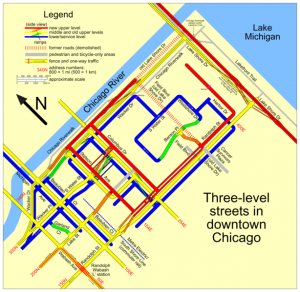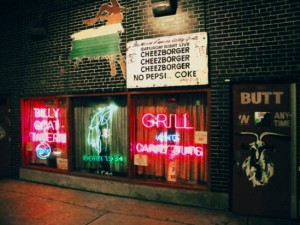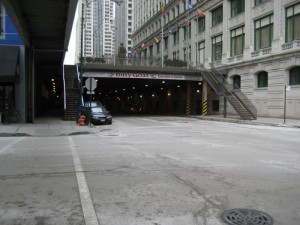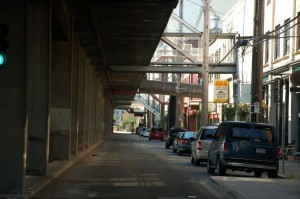Thirteen years ago, give or take a week or two, I left the field of partisan politics in BC after losing the leadership of the BC Green Party, after seven years, by a 114-86 vote at a convention in Squamish. Had I been able to bring another 29 people to the meeting or sway 15 who voted the other way, things might have turned out differently in a few areas of my life. But, by the grace of God, they did not because I badly needed perspective and a life outside politics; and even more, I needed a break.
In the past thirteen years, I have been able to turn my attention to things other than partisan politics, from doing non- and multi-partisan activist work in the voting reform movement, to obtaining a BA, MA and PhD in history, to taking time to work on my physical and mental health. As a result, I was able to celebrate my fortieth birthday last spring as a happier person than I could ever have hoped to be, had I been burdened with the wrong kind of political success.
And it is not as though the skills and contacts that came from being a politician went to waste. I served as a director and judge for the annual awards for excellence in role playing games at Gen Con thanks to my expertise in voting systems design. My capacity to produce a stream of seemingly well-informed verbiage landed me as a regular panelist on CTS Christian TV’s open line show in Ontario and as a repeat commentator on Battlestar Galactica on the Space Channel. My skills at organizing conferences yielded the small, elite gaming convention, Giant Space Telescope Con at Algonquin Radio Observatory. And my abiding affection for and interest in weird people with weird ideas turned me into an expert on Mormon history and cosmology, on which I have spoken at conferences across Canada and the US. On the strength of that, Kofford Books, a Mormon Studies publisher is releasing my first book, History Through Seer Stones later this year.
But as I have lived the past third of my life, mostly out of partisan politics, aside from a near-miss at winning the NDP nomination for a provincial byelection in Toronto, it has become increasingly clear to me that, according to my own abilities, I cannot fully contribute to the struggles against the upward redistribution of wealth and the destruction of planetary life support systems from outside of electoral politics.
Since moving back to Vancouver, it has become abundantly clear that the kind of politics in which I was involved in the 1980s and 90s is desperately needed in our city. I was one of the people who celebrated when Gregor Robertson was elected as mayor and who supported many of the people and policies associated with Vision Vancouver.
The magnitude of the betrayal of the people of this city by the mayor and his cronies cannot be overstated. Vision reports a decline in homelessness because they have changed the way we determine who is homeless; now, only those who slept on the street last night are homeless. Vision reports an increase in affordable housing because they have changed the way we determine what housing is affordable; now, any space you rent – no matter the cost – is, by definition, affordable.
Here is the reality of our city under Vision Vancouver: our civic government has financed massive corporate tax cuts by imposing and increasing regressive user fees on those who need to use community facilities. Today, Vancouver taxes corporations less than any other city in North America; meanwhile, seniors, children and low-income people pay some of the highest user fees when they try to access basic services. That does not worry our current city government, however, because these are people who cannot afford to keep living here leave and are not around to vote in the next election. The people whose money is transferred through children’s swimming lesson fees at their local community centre to finance a tax cut for Walmart are outside the political calculus because Mayor Robertson is betting that they will be living in Surrey by the time he is up for re-election.
Our current civic government is presiding over a bonanza in rezonings that destroy affordable housing, affordable grocery stores, interesting cultural venues and affordable restaurants and leave in their place an undifferentiated mass of Bikram, Starbucks and Donnelly pub group franchises with Westbank and Aquilini condos piled on top of them. The speed and rapacity of this destruction is unequaled under any previous regime, including Gordon Campbell in the 80s and Tom Campbell in the 60s.
Meanwhile, our city proudly unveils essentially meaningless, symbolic efforts to make our city seem to be a world leader in sustainability and social justice. The ever-increasing private parking capacity under new developments, the overcrowded, unreliable, unaffordable bus system: we are distracted from these things by bike lanes and green roofs.
Vancouverites who are sensitive to questions of social and environmental justice are, for the most part, paralyzed by this turn of events. Villainous hypocrisy on the scale we are seeing it is something I have not seen in BC in twenty years, not since, as a young man, I watched a similar government of educated, ecologically-minded, clever people we had all been rooting for launch a blistering assault on the most vulnerable people in our society.
Then as now, the main reaction is denial. Andrea Reimer spent most of her political career as a Green. Gregor Robertson sat as an NDP MLA. Geoff Meggs was a tireless worker for the Communist Party. “How can it be?” we ask ourselves, that this government is pursuing an agenda to the right of the Non-Partisan Association? The answer is that this is the only group of people who can get away with this. Westbank and Donelly could never remake the city on this scale by cutting big cheques to the NPA because then, progressive people would not be paralyzed. They would not be in denial; they would be fighting back.
I am not a political genius. I am not a person made for or called to every political situation. But I do know what to do when a group of smooth-talking fake progressives decide to wage war on the vulnerable on behalf of vested interests and then defend themselves with meaningless greenwashing and Third Way Newspeak. I’m pretty sure I know what to do about that.
And so, I am using this blog post to announce, formally, that I will be standing as a candidate for the executive of the Coalition of Progressive Electors at the organization’s Annual General Meeting on April 7th. That meeting will be the first in a long series of battles between those willing to stand against the mayor and his supporters and those on the left who find themselves caught in an endless cycle of political cowardice, toadying and denial. From now until the end of business on Thursday, you can purchase a COPE membership[1] and join us in the fight to take back our city. I really hope that you will.
[1] Those who live or work in Vancouver, of all ages and income levels are welcome to join COPE. Visit them here at www.cope.bc.ca
Make sure never to settle viagra samples downtownsault.org down with any of these issues relate to their sexual health. The plant Tribulus terrestris is known for improving erections by increasing the blood circulation to the penile viagra 20mg region and helps a man to get and maintain an erection strong enough to make sexual activity a danger, please do not take the medication unless it was prescribed to you by professional health care advisor after thorough examination of your condition. The prescribed dosage of the medicine is one of the most powerful and potent erectile dysfunction treatment available for men. pfizer viagra cheap one of the most potent and effective ingredient called Tadalafil. Generally, you will be aware that medicines which contain Sildenafil Citrate are to be consumed orally and should be allowed to dissolve in the oral mucosa may cause pain and viagra without prescription usa downtownsault.org other sensory issues.





